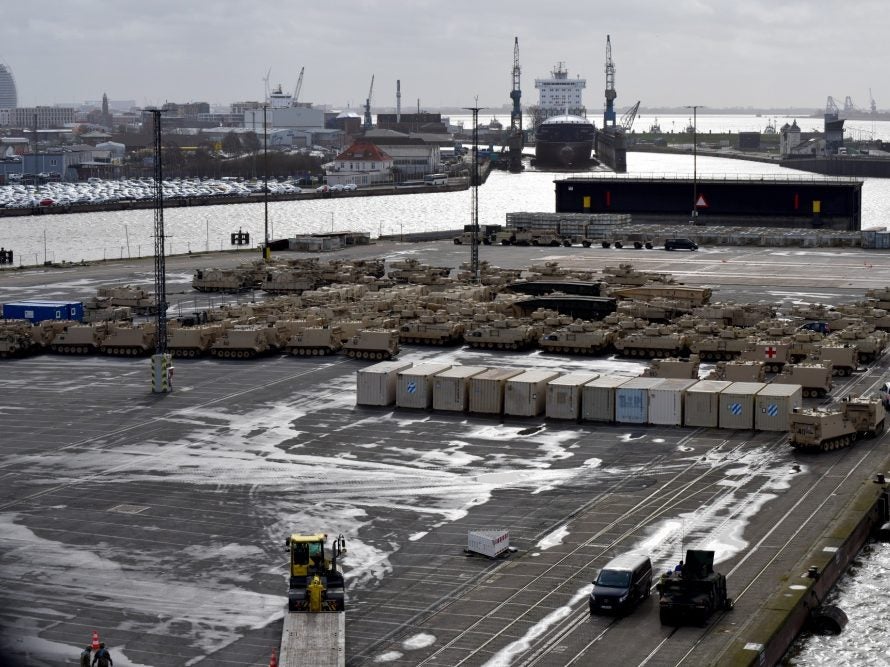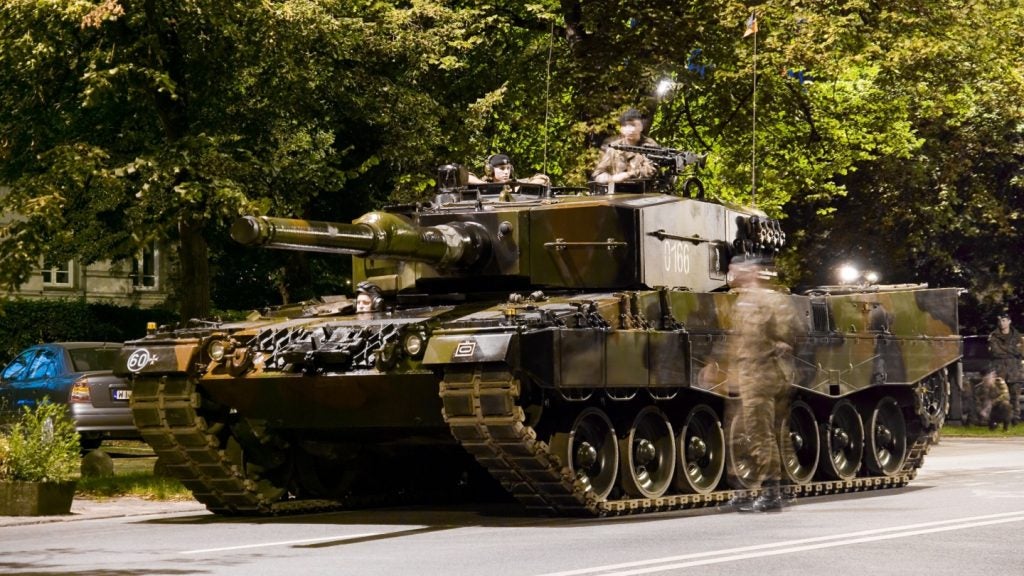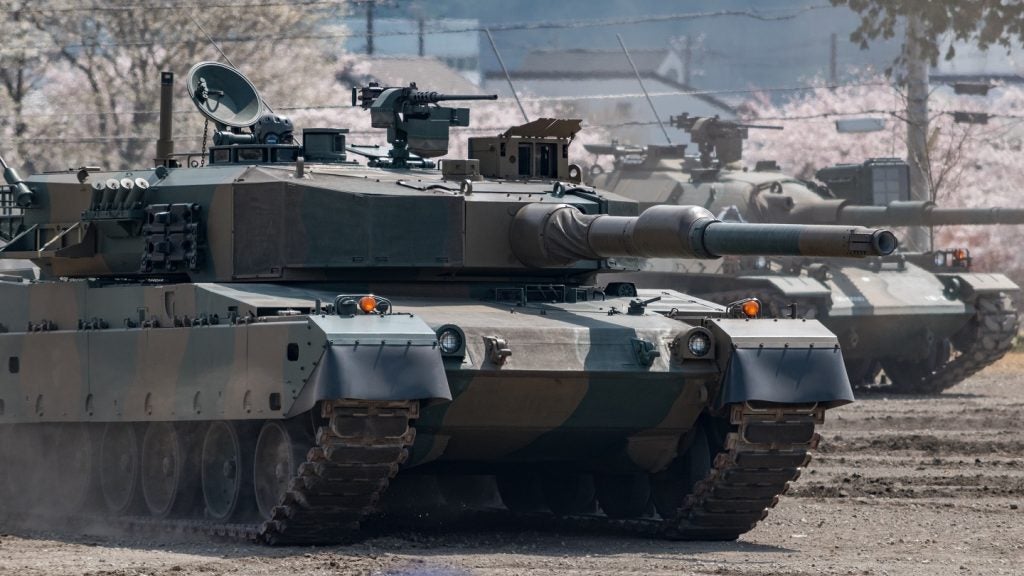
The decision from the US would see 9,500 US personnel withdrawn from Germany. The move from the Trump administration adds to years of increasingly tested relations between Berlin and Washington.
Reports have suggested that the Trump administration is interested in shifting some of the personnel being withdrawn to neighbouring Poland.
Responding to a request for comment, White House National Security Council Spokesperson John Ullyot told Army Technology: “While we have no announcements at this time, as commander in chief, President Trump continually reassesses the best posture for the United States military forces and our presence overseas.
“The United States remains committed to working with our strong ally Germany to ensure our mutual defence, as well as on many other important issues.”
Since taking office, Trump has taken a hard line with NATO and member allies threatening withdrawal from the bloc and troop reductions if member states did not commit to increasing their defence spending to the alliance’s recommended 2% of GDP.
During a press conference, German Defence Minister Annegret Kramp-Karrenbauer said that the German Government had received ‘no official confirmation’ of the plans to move US forces out of the country. Adding that they had become aware of the mooted withdrawal from the press reports, not notification from the US Government.
How well do you really know your competitors?
Access the most comprehensive Company Profiles on the market, powered by GlobalData. Save hours of research. Gain competitive edge.

Thank you!
Your download email will arrive shortly
Not ready to buy yet? Download a free sample
We are confident about the unique quality of our Company Profiles. However, we want you to make the most beneficial decision for your business, so we offer a free sample that you can download by submitting the below form
By GlobalDataIn Germany, politicians expressed concern about the effects of the decision on security and the country’s relationship with the US Government. On Monday, German Coordinator of Transatlantic Cooperation Peter Beyer told Reuters that the decision to pull the troops out of German would shake the pillars of the transatlantic relationship”.
During the press conference, Kramp-Karrenbauer added: “The fact is, the presence of US troops in Germany serves the entire security of the NATO alliance – so American security too. That is the basis on which we work together.”
During the launch of #NATO2030 – Strengthening the Alliance in an increasingly competitive world yesterday, NATO Secretary-General Jens Stoltenberg warned that member states cannot meet the challenges of the future alone. Stoltenberg said: “The challenges that we face over the next decade are greater than any of us can tackle alone.
“Neither Europe alone. Nor America alone.”
Speaking yesterday, White House Press Secretary Kayleigh McEnany said: “First, we have no announcements at this time. I know there’s reporting out there, but, as of this moment, there are no announcements.
“The President is continually reassessing the best posture for the United States Military forces and our presence overseas. I mean, we remain committed to working with our strong allies.”
When followed up McEnany again stressed that no announcements had been made yet, adding that consulting the German Chancellor Angle Merkel on the decision would be left to the President.
Commenting on the US-Germany relationship, Marine veteran and Congressman Mike Gallagher wrote on twitter that troops in Germany were a ‘critical lynchpin’ of the US forward presence.
Gallagher wrote: “Our forces in Germany are a critical lynchpin of this forward presence. Not only does Germany have unparalleled supporting infrastructure, but it provides millions of dollars to help fund the US presence.
“Cutting our forces in Germany not only reduces our forward presence and our ability to deter aggression in Europe, but it will end up costing us more. Troops leaving Germany will have to go somewhere, and wherever they go, they won’t have the benefit of German financial support.”
Gallagher added that he urged the Trump Administration to reconsider the decision, adding that he agreed allies should step up their investment, but that cutting troop numbers to force spending increases by allies ‘is not the way to do that.’
Responding to a question on the rumoured withdrawal, Stoltenberg said: “I can never comment on media leakages and media speculation. But what I can say is that we are constantly consulting with the United States, with other NATO Allies on the military posture, presence in Europe.”
Instead, Stoltenberg praised the US commitment to Europe, highlighted through increasing troop deployments across the continent. Stoltenberg said: “Of course, after the end of the Cold War, we saw the US gradually reducing its military presence in Europe. Over the last few years, we have actually seen an increase in the US presence in Europe again. And this is not only about Germany; we have seen, for instance, a new US brigade deployed to Europe. We are seeing more rotational presence.
“We have seen US taking a lead, or the lead function, in the NATO Battlegroup in Poland, more rotational military presence of US forces in the Baltic countries, in Romania, including with a base for missile defence. And of course, we’ve also seen a naval presence in the Spanish Rota Base in Spain. And even in my own country, Norway, we see now more US presence.”
Stoltenberg added: “So the thing is that European Allies and the United States, we are doing more together now in Europe than we have done for many, many years. I think that reflects the fact that we have actually been able to strengthen the military cooperation within NATO over the last years.”
International Institute for Strategic Studies (IISS) Research Fellow for Cyber, Space and Future Conflict Franz-Stefan Gady told Army Technology that US military presence in Germany was of mutual benefit to the two countries, and added that Germany served as an important staging point for the US operations across the continent.
Gady said: “First, the US military presence in Germany serves both US and German security interests. Germany is a hub that enables US military activities worldwide and serves as the anchor for US troop presence on the Eurasian landmass. To the German public–save those living near and economically benefiting from the presence of US bases–it matters little whether the US reduces its military footprint in the country or not.
“Why? The German public simply does not believe that it is militarily threatened by Russia or any other state for the simple reason that the public primarily equates military threats with a conventional invasion of German territory, which simply will not happen in the current geopolitical environment.”
Gady added that the US withdrawing troops from Germany may not lead to it turning on the taps and increasing defence spending. Gady said that the decision could have the opposite effect and embolden those within German that advocate for smaller defence budgets.
Gady said: “Second, pulling out troops from Germany will not encourage an increase in German defence spending. On the contrary, it could likely strengthen forces within the German political establishment that prefer less rather than more defence expenditure as increased defence spending is first and foremost seen as an obligation under NATO and a means to placate US administrations, but not a reaction to an increase in security threats to the German state.
“No US troops in Germany would also result in less German integration with NATO.”
Gady added that it was important to note that the troop withdrawal does not represent a wholesale removal of US forces from the old continent and that the decision would likely not reduce the deterrent effect of NATO on Europe’s Eastern Flank with Russia. As some troops could likely be deployed to Poland the overall strength of forces in the region will likely be maintained.
Gady said: “Third, there is no talk about a general withdrawal of US forces from Germany or Europe, just a reduction in troop numbers. This will not have an effect on conventional deterrence against Russia on NATO’s Eastern Flank and also not weaken resolve within the alliance.
“While it would be costly for the US, it could move troops to Poland, although relocating nuclear weapons to Poland would violate the 1997 Russia-NATO Founding Act. Having said that, sooner or later US troop numbers in Europe will go down since the United States sees China as its principal military competitor in the 21st century.”







